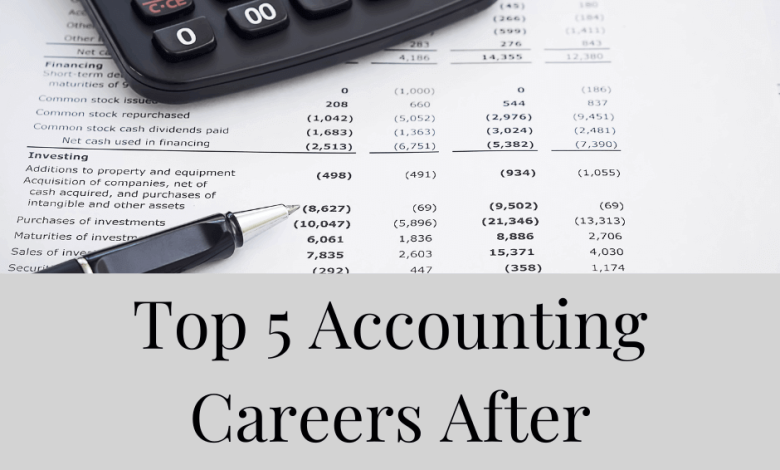Top 5 Accounting Jobs After Graduation

After finishing academic graduation, the initial joy of achievement is soon replaced by thoughts of the future. How do I choose the right job for me? Which career would be suitable for me? Which course should I take? Before making any career decisions, you must consider all the options forthcoming to you and note the details of each career so you know which one is right for you.
Accounting is a competitive career choice because a career in accounting usually comes with a high salary, job security, and a certain amount of prestige. However, they are also associated with hard work. You can choose between several positions if you move into the accounting field.
Different accounting positions have additional educational requirements, so it is wise to decide now on a career goal. An excellent place to start is to consider the best accounting jobs available today. This blog has outlined the “Top 5 Accounting Careers After Graduation”. Let’s start reading.
Top 5 Accounting Jobs After Graduation
Auditor
Different types of accountants perform different specialized roles. These roles include internal audit, external audit, and forensic audit. Auditors are generally responsible for assessing compliance with financial standards and reporting rules. Internal auditors focus on compliance within their organization, while external and forensic auditors are used to review compliance and independently investigate irregularities in external organizations.
The path to becoming an accountant requires the completion of an appropriate bachelor’s degree and the completion of additional accountant training. The required continuing education depends on the department, i.e. internal audit, external audit or forensic audit.
Financial accountant
Accountants are responsible for preparing the organization’s financial statements and performing related accounting functions. They can work in analysis businesses or the financial departments of any different type of organization. Contrary to popular belief, tax accountants are busy year-round, not just during tax filing season.
The duties of a financial accountant include preparing a budget, managing tax payments and conducting internal audits. You will be a senior management consultant performing cost and benefit analyses. There are various training options to become a financial accountant, including the AAT Accountant Qualification, the ACCA Qualification or the Chartered Accountant Qualification. Answering the position requires an accounting education and appropriate work experience.
Tax accountant
Tax accountant work primarily focuses on preparing and filing income tax returns for private, government, and corporate clients. They take measures to reduce their clients’ tax liabilities by deeply understanding tax laws and regulations. These laws and regulations are constantly evolving, and tax accountants must stay abreast of them to provide optimal client results. Tax accountants also educate clients about the tax implications of proposed business plans, life changes, etc.
The minimum requirement for a junior position is an appropriate bachelor’s degree (or equivalent). A management position may require additional certifications or professional qualifications in tax accounting.
Forensic accountant
Forensic accounting is one of the most lucrative jobs, which involves examining and analyzing financial records to detect unusual activity and other irregularities. Law enforcement agencies and lawyers often hire forensic accountants to investigate crimes such as embezzlement and fraud. These professionals use the evidence they collect to reconstruct financial events and are often called witnesses in court. Companies also sometimes hire forensic accountants to develop strategies to prevent fraud in the workplace.
Accounting manager
Accounting managers handle the professional accounting functions of businesses. They usually prepare financial information for various internal organization users, including managers and directors. They examine a company’s financial data for forecasting purposes and are generally required to prepare, present, and submit reports, including income statements, profit and loss statements, and cost accounting reports, on a weekly, quarterly or annual basis. The confidential reports prepared by them are used to make important decisions. To pursue this course, one must complete an introductory graduation course.
By reading those above points, you must have realized that a career in accounting requires technical knowledge and very good numerical, communication, and analytical skills, along with attention to detail. Regardless, these accounting qualifications open doors to a wide range of career opportunities that revolve around managing and analyzing a company’s financial statements. For more information, go through SpotGiraffe helps with career development.



